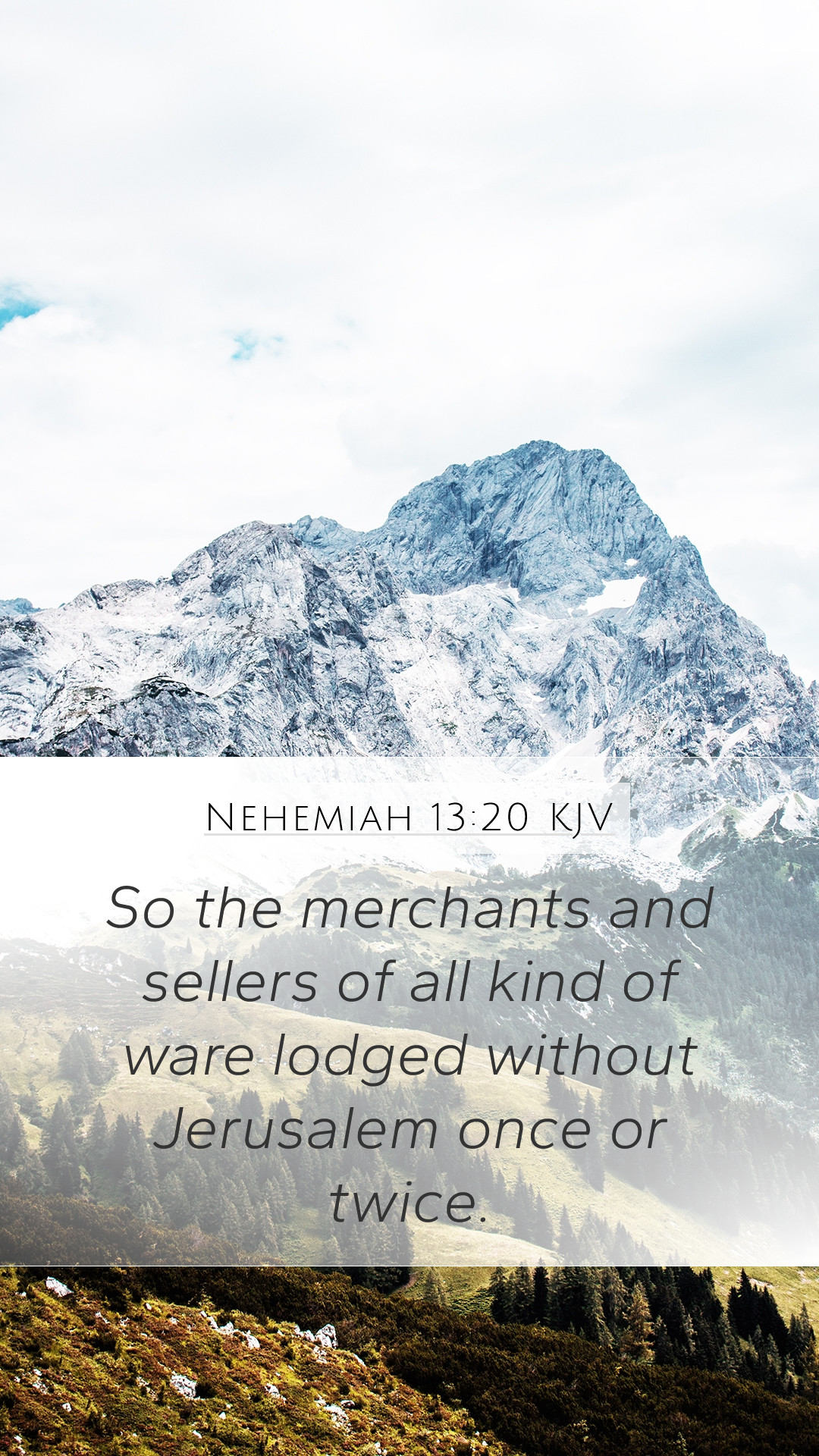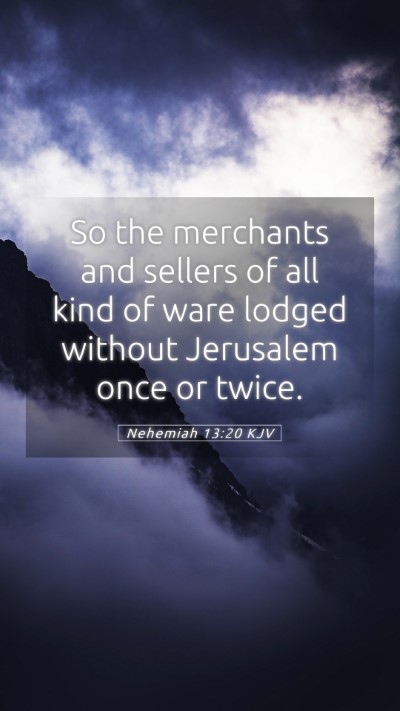Understanding Nehemiah 13:20
Bible Verse: Nehemiah 13:20
This verse states: "So the merchants and sellers of all kinds of wares lodged outside Jerusalem once or twice." This passage is significant in the context of Nehemiah's reforms and the governance of Jerusalem after the return from exile.
Verse Meaning and Insights
The verse provides a critical perspective on the practices of trade and commerce that were occurring in Jerusalem, especially on the Sabbath. It highlights the challenges faced by Nehemiah in enforcing the laws and maintaining the holiness of the city.
Matthew Henry's Commentary
According to Matthew Henry, this verse illustrates the persistent problem of improper commercial activity that threatened the sanctity of the Sabbath. Merchants camping outside the city was a visual representation of the temptation and encroachment of secular practices within sacred boundaries. Henry emphasizes the need for vigilance and strict adherence to the observance of the Sabbath as commanded in the law.
Albert Barnes' Commentary
Albert Barnes notes that the presence of merchants outside Jerusalem symbolized rebellion against the spiritual order established by Nehemiah. He contextualizes the merchants' behavior as a potential influence that could lead to the corruption of the community's religious practices. Barnes underscores the necessity for the leaders to create an environment conducive to worship and dedication to God’s laws.
Adam Clarke's Commentary
Adam Clarke highlights the socio-economic implications of this verse. He points out that the conduct of these merchants was not merely about trade but was indicative of a deeper moral and spiritual decline within the community. Clarke argues that Nehemiah's response was not simply about enforcing rules but about fostering a culture of holiness and devotion to God within everyday life.
Key Themes of Nehemiah 13:20
- Restoration of Holiness: Nehemiah's efforts to restore the spiritual integrity of the Israelites.
- Challenge of Secularity: The constant battle between sacred observance and secular influence.
- Community Vigilance: The need for watchfulness and diligence in protecting religious practices.
- Moral Integrity: The implications of trade practices on spiritual life and faith.
Cross References
- Exodus 20:8-11: Command to keep the Sabbath holy.
- Nehemiah 10:31: Agreements regarding trading on the Sabbath.
- Isaiah 58:13-14: The importance of delighting in the Sabbath.
Conclusion
In summary, Nehemiah 13:20 serves as a crucial reminder of the importance of maintaining spiritual integrity in the face of external pressures. Through a combination of insights from various biblical commentaries, we find a deeper understanding of the significance of the verse within the larger narrative of scripture. It calls us to reflect on our own practices and the influences within our lives that may detract from our devotion to God. As we delve into Bible study insights and scripture analysis, may we be encouraged to live out the teachings found in this passage, fostering a commitment to holiness in all aspects of our lives.


